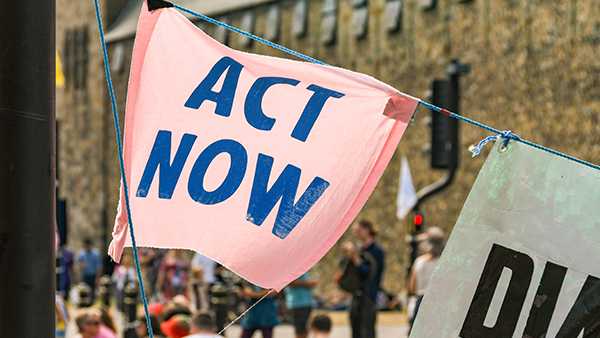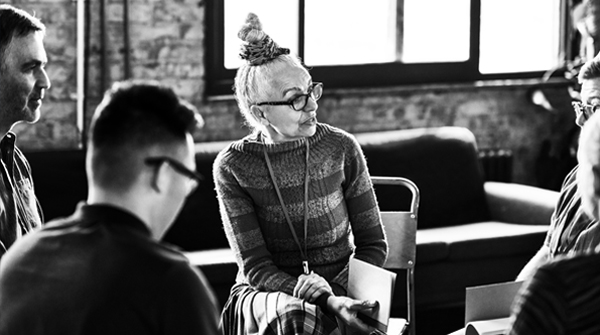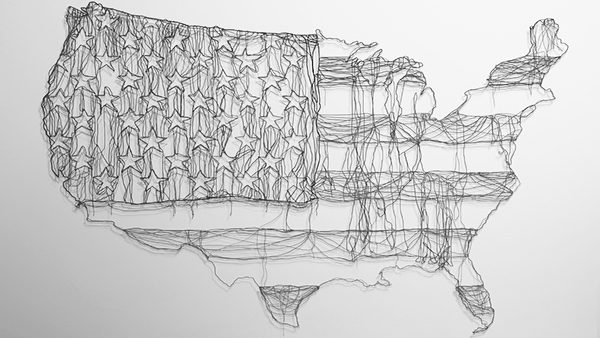Progressive politics, very broadly defined, cuts across the political spectrum.
Exact definitions vary, but generally progressives are people committed to public services, redistribution, a fair market economy, human rights, liberal democratic institutions and internationalism.
Progressives within all of the main parties have been in state of long-term despair. From austerity to Brexit, policy seems to be moving away from them. But in this election campaign, something surprising is happening – progressive policies are re-emerging from a number of parties.
There are grounds to identify elements of an emerging political settlement evident across the Conservatives, Labour, the Liberal Democrats, the Greens, and the major nationalist parties.
Of course, there are still huge differences between the parties. These are naturally emphasised during an election. And even on the policies where there is some agreement, the scale and level of commitment remain very different.
But I think there are six areas where progressives are starting to get the upper-hand in the policy debate:
An emerging policy consensus?
Borrowing to invest
Firstly, there is a growing consensus about the need to borrow to invest. The Institute for Fiscal Studies has reported an additional £20billion a year of investment for the Conservatives and £55billion a year for Labour (this was before the announcement of free broadband for all which would likely add to this amount).
Yes, the scale is different. But the principle that the UK needs a higher level of public investment to support growth, productivity and public services is now an assumption shared across the board. That is a shift from the early years of austerity.
Regional rebalancing
Labour has committed to an enormous £150billion regional transformation fund.
The Conservatives at a much smaller scale today committed to provide support for small businesses, community assets and local rail services in rural areas and towns. They had previously announced a £3.6 billion Towns Fund.
Without getting into the business of comparing apples with oranges, the intellectual case for transfer of resources towards the North and towards towns and rural areas is now accepted to a certain extent across the political spectrum.
Climate Change
Few in mainstream politics are questioning the science of climate change anymore. There are different approaches to decarbonisation in terms of pace and scale of adaptation (with the Green Party and Labour the most ambitious).
But we are not in a situation such as Australia – where retrograde government policy on climate change has recently caused Sweden’s Central Bank to divest from the country.
Labour Regulation
When it comes to regulation of the labour market there is similar acceptance of the need for change. Improved minimum wages and labour market regulation and rights are now seen as essential: not least evident in the Government’s response to the Taylor review.
NHS Investment
There is also acceptance of the need for investment in the NHS at significant levels. The Conservatives will increase expenditure by £23.5billion by 2022-3 and Labour by £8.8billion more than that.
Skills Investment
Finally, there is an emerging consensus about the need for significantly more investment in skills and lifelong learning.
The Liberal Democrats announced an eye-catching policy for a £10,000 individual skills wallet over the course of life for investment in skills and training. (Interestingly, the RSA proposed a £10,000 ‘opportunity fund’ last year which would be available to use on training but a wider range of supports too.)
Labour will offer six years of free access to adult stage higher learning. Both parties also support a highly significant widening of support for childcare too. The Conservatives have started to invest more in further education again after a decade of deep cuts.
Are progressives more downbeat than they should be?
So actually, there is much to be built upon over the next few years: support for the NHS, decarbonisation, skills and lifelong learning, wages and worker rights, regional rebalancing, and overall levels of investment. Progressives need not completely despair.
Why are many progressives so downbeat then? There are lots of equally significant areas where there are no signs of progressives winning the argument.
The welfare state is a mess and there is little appetite across the board to address this and re-ignite the fight against poverty and economic insecurity. There are huge gaps on providing a strong social infrastructure such as youth provision and high quality and perhaps universal social care, all fraying from austerity.
And, as we know, there are huge disagreements about the future of the constitution, our international relationships, and over issues of identity and diversity.
There is undoubtedly less to cheer progressives in these spaces in the context of Brexit: what led to it and what it could unleash. (Notwithstanding, this week one poll found that a significant majority now favour freedom of movement post Brexit.) These issues of culture, nation, identity, internationalism are unsurprisingly where most of the political heat has been expended in the run up to and since the 2016 EU Referendum.
And, it is perhaps, for this reason that progressives are rather more downbeat than some fundamentals of policy agreement suggest they should be. There are caveats, but progressives are winning more arguments - even if they feel remote from power.
Related articles
-
The public are ready to go further and faster on net zero
Anthony Painter
The public are ahead of policy-makers and, indeed, most of the business world. COP26 is an enormous opportunity to catch up. Global leaders should take it.
-
Can progressives ever stop the in-fighting?
Matthew Taylor
Biden's victory has caused the left and moderates to fracture again.
-
Can President Biden bring America together again?
Anthony Painter
There is a long road ahead for the new president.




Be the first to write a comment
Comments
Please login to post a comment or reply
Don't have an account? Click here to register.